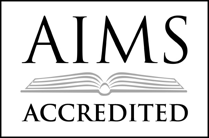Educating for Responsibility
October 19, 2017 by
On October 4 – a few days before Yom Kippur – I presented the first in a series of lectures for MILTON’s middle school Scholars Forum on Jonah and his aborted escape from responsibility. I don’t often get to teach middle schoolers in my work, and I was particularly excited that morning because, as a consultant to the middle school, I had spent many hours in discussion with its director Lisa Schopf last year, thinking out loud about this remarkable opportunity. Building a new division of a school requires a lot of dreaming and planning so to meet the first crop of students was a privilege.
We all want to escape responsibility sometimes. I wanted to honor the students’ personal experiences and understand the kind of responsibilities most of them want to run away from. To that end, I asked them to write their answers to a few important life questions: Is there a commitment you are running away from or have run away from in the past? Do you think leaders can escape from responsibility? What conversation might you have with yourself when confronting a daunting task?
Our discussion focused predominantly on the first question. It seemed that nearly everyone had something to say. High up on the list of popular answers was running away from cleaning their rooms. This parental request seems to be ignored quite frequently and also pointed to the difference from running away from tasks that are self-determined and those mandated by others, namely, parents. Surprisingly few students commented on homework as a responsibility they ran away from. That doesn’t mean they were running towards it either!
Once we assessed what they were running from, it was time to talk about why. The “why” in this case ran the gamut of having other things to do, not wanting to do what you’re asked, the fear of failure and even the fear of success. When we do something well, we’re often asked to do it again, adding to our growing list of responsibilities to ourselves and others. This discussion created the platform for the text study ahead.
We looked at the first two verses of Jonah and asked some central questions: “Now the word of the Lord came unto Jonah the son of Amittai, saying ‘Arise, go to Nineveh, that great city, and proclaim against it; for their wickedness is come up before Me.'” Why do you think Jonah ran away from God and God’s request? Why did he go specifically to Tarshish? What do you think went through Jonah’s mind while he was in the big fish?
One of the most helpful and easiest ways to teach the relevance of the Hebrew Bible is to ask students (of all ages) to imagine themselves as the biblical character. What would they think about in the belly of a fish and symbolically what it means to be trapped in self-confrontation when facing a daunting responsibility? To help them think about this visually, we looked at an etching of the artist Gustav Dore. It’s captures a moment when Jonah looks back at the fish that just spewed him out with wonder, amazement and trepidation. Kind of like what it feels like when you embark on any new venture, like, let’s say, creating a new middle school.






